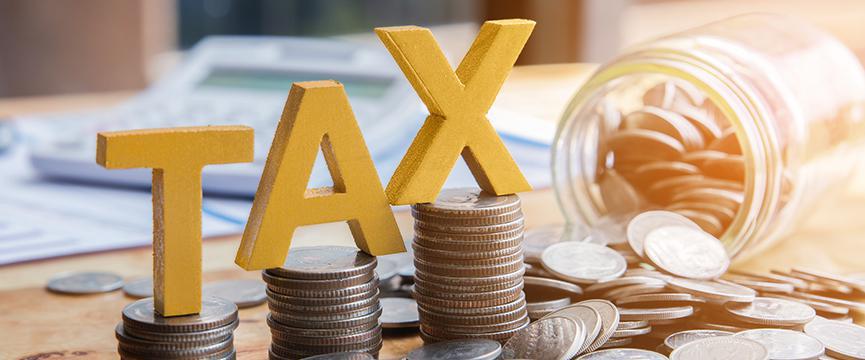
What is a Crypto Wallet and How Does It Work?
- summy Morphe
- April 27, 2023
- Blockchain, Crypto
- Crypto, Crypto wallet, Cryptocurrency'blockchain
- 0 Comments
In recent years, the world of cryptocurrency has exploded in popularity, and with it has come the need for secure storage solutions. Enter the crypto wallet – a tool designed to keep your digital assets safe and accessible. But what exactly is a crypto wallet, and how does it work? In this article, we will explore the ins and outs of crypto wallets, their functionality, and the different types available to users.
What is a Crypto Wallet?
At its core, a crypto wallet is a digital wallet that allows users to store, send, and receive cryptocurrencies. Unlike traditional wallets, crypto wallets do not hold physical cash or cards but rather store private keys that are required to access your digital assets. These private keys are used to sign transactions and authenticate ownership of your digital assets.
How Does a Crypto Wallet Work?
Crypto wallets work by leveraging public key cryptography to secure and manage your digital assets. Public key cryptography is a system that uses two keys – a public key that is used to encrypt data and a private key that is used to decrypt it. In the case of a crypto wallet, the public key is used to receive transactions, while the private key is used to send transactions.
When you first set up a crypto wallet, you will be given a unique public and private key pair. Your public key acts like a digital address that can be shared with others, allowing them to send you cryptocurrency. Your private key, on the other hand, must be kept secret at all times and is used to authorize transactions from your wallet.
Types of Crypto Wallets
There are several types of crypto wallets available to users, each with its own unique set of features and benefits.
Hardware Wallets
Hardware wallets are physical devices that store your private keys offline, offering the highest level of security. They are often the preferred choice for users who hold large amounts of cryptocurrency.
Software Wallets
Software wallets are digital wallets that are stored on a computer or mobile device. They can be further categorized into hot wallets and cold wallets. Hot wallets are connected to the internet, while cold wallets are kept offline, providing a higher level of security.
Paper Wallets
Paper wallets are physical pieces of paper that contain your public and private keys. They are often used as a backup option for users who are concerned about losing their digital assets due to a hardware or software failure.
How to Choose a Crypto Wallet
Choosing the right crypto wallet can be a daunting task, especially for beginners. To make the decision easier, consider the following factors:
Security
The security of your digital assets should be your top priority when choosing a crypto wallet. Look for wallets that use industry-standard security features like two-factor authentication and multi-signature support.
Compatibility
Make sure the wallet you choose is compatible with the cryptocurrencies you plan to store. Some wallets only support a limited number of currencies, so it’s important to do your research beforehand.
User-Friendliness
A user-friendly interface can make managing your digital assets much easier. Look for wallets that have a clean, intuitive interface and offer helpful features like transaction tracking and easy-to-understand analytics.
Price
Some wallets may charge fees for transactions or have a one-time purchase cost. Consider your budget and how often you plan to use the wallet before making a decision.
Common Mistakes to Avoid When Using a Crypto Wallet
While crypto wallets are generally secure and easy to use, there are a few common mistakes that users should avoid:
Losing Your Private Key
As mentioned earlier, losing your private key can result in permanent loss of your digital assets. To avoid this, make sure to keep your private key in a secure location and back it up in case of a hardware or software failure.
Falling for Phishing Scams
Phishing scams are common in the world of cryptocurrency, and can result in the loss of your digital assets. To avoid falling victim to a phishing scam, always double-check the URL of any website or app that asks for your private key or other sensitive information.
Using a Public Wi-Fi Network
Using a public Wi-Fi network can put your digital assets at risk, as these networks are often unsecured and can be accessed by hackers. When using your crypto wallet, make sure to use a secure, private internet connection.
Pros and Cons of Crypto Wallets
Like any technology, crypto wallets have both advantages and disadvantages. Here are some pros and cons to consider:
Pros
- Security: Crypto wallets offer a high level of security for your digital assets, especially if you choose a hardware wallet.
- Decentralization: Crypto wallets are decentralized, meaning they are not controlled by any central authority or government.
- Accessibility: Crypto wallets make it easy to store and access your digital assets from anywhere in the world.
Cons
- Complexity: Crypto wallets can be complex to set up and use, especially for beginners.
- Irreversibility: Cryptocurrency transactions are irreversible, meaning if you send funds to the wrong address, there is no way to get them back.
- Volatility: The value of cryptocurrencies can be highly volatile, meaning the value of your digital assets can fluctuate rapidly.
Security Features of Crypto Wallets
Security is one of the most important factors to consider when choosing a crypto wallet. Here are some common security features to look for:
Two-Factor Authentication
Two-factor authentication requires users to provide two forms of identification before accessing their wallet. This adds an extra layer of security, making it more difficult for hackers to gain access.
Multi-Signature Support
Multi-signature support requires multiple parties to sign off on transactions, making it more difficult for a single party to steal funds.
Seed Phrase Backup
A seed phrase is a series of words that can be used to recover your wallet if you lose your private key. This backup method is crucial in case of a hardware or software failure.
How to Set Up a Crypto Wallet
Setting up a crypto wallet is relatively simple, but the exact process may vary depending on the type of wallet you choose. Here are the basic steps:
- Choose a wallet: Decide which type of wallet is best for you based on your needs and preferences.
- Download the wallet software: If you choose a software wallet, download the wallet software onto your computer or mobile device.
- Create a new wallet: Follow the instructions to create a new wallet and generate your public and private keys.
- Backup your seed phrase: Write down your seed phrase and keep it in a secure location.
- Fund your wallet: Transfer cryptocurrency into your wallet using your public key.
How to Use a Crypto Wallet
Using a crypto wallet is relatively simple, but there are a few things to keep in mind. Here are some basic steps:
- Access your wallet: Depending on the type of wallet you have, you may need to enter a password or use two-factor authentication to access your wallet.
- Send cryptocurrency: To send cryptocurrency, enter the recipient’s public key, the amount you want to send, and confirm the transaction using your private key.
- Receive cryptocurrency: To receive cryptocurrency, share your public key with the sender and wait for the funds to arrive in your wallet.
- Check your balance: Most wallets allow you to check your balance and transaction history, which can be useful for tracking your digital assets.
Crypto Wallets and Taxes

If you own and use a crypto wallet to store and transact with cryptocurrencies, it’s important to understand the tax implications. In many countries, cryptocurrencies are considered taxable assets, and you may need to pay taxes on any gains or losses. Here are some key things to keep in mind:
Capital Gains Tax
In most countries, any gains you make from the sale or exchange of cryptocurrencies are subject to capital gains tax. This tax is calculated based on the difference between the purchase price and the sale price of the asset.
Income Tax
In some cases, income earned through cryptocurrency mining or staking may be subject to income tax.
Reporting Requirements
Many countries require individuals to report any cryptocurrency transactions on their tax returns, regardless of whether or not taxes are owed. It’s important to keep accurate records of your transactions and consult with a tax professional to ensure compliance with local laws.
Crypto Wallets and Privacy
Privacy is a key concern for many cryptocurrency users, and crypto wallets can play an important role in maintaining privacy. Here are some ways that wallets can help protect your privacy:
Anonymity
Some wallets allow users to transact with cryptocurrencies anonymously, without revealing personal information.
Decentralization
Crypto wallets are decentralized, meaning they are not controlled by any central authority or government, which can help protect against censorship and surveillance.
Privacy Coins
Some cryptocurrencies, known as privacy coins, are designed specifically to provide enhanced privacy features like stealth addresses and ring signatures.
Conclusion
In conclusion, a crypto wallet is a valuable tool for anyone looking to store, send, and receive cryptocurrencies. By understanding the pros and cons of crypto wallets, the different security features available, and how to set up a wallet, you can ensure that your digital assets are secure and easily accessible. As the world of cryptocurrency continues to evolve, the importance of crypto wallets will only continue to grow.


